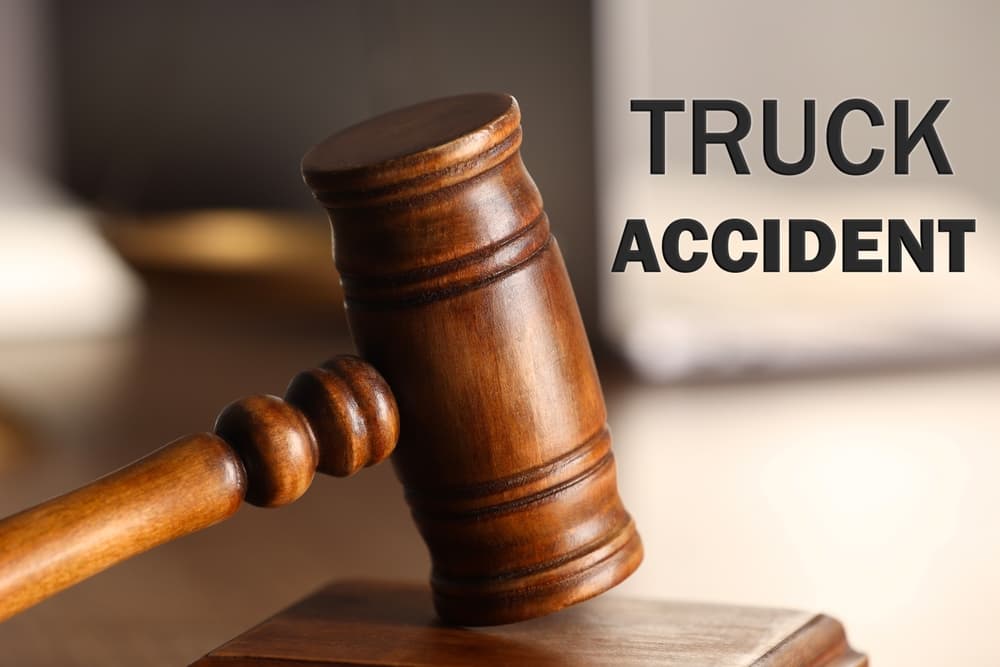Motorcycle accidents can lead to life-changing injuries, leaving you in pain and dealing with mounting expenses. Filing a lawsuit for compensation often feels intimidating, especially when your case can take months or even years. However, knowing what goes into a motorcycle accident lawsuit can give you peace of mind. It can also help you better prepare for what’s ahead.
Knowing the possible timeline is essential when seeking compensation for medical bills, property damage, lost income, or emotional suffering. Let’s look at each stage of the process so you know what to expect from start to finish and how an experienced motorcycle accident lawyer can obtain fair compensation.
The Initial Steps After a Motorcycle Accident
The steps taken immediately following a motorcycle accident impact the duration of a lawsuit. The timeline begins the moment you’re injured, even though it may not feel that way. Collecting evidence, documenting injuries, and securing medical records are necessary steps, and they often begin well before the first legal filing.
After an accident, you’ll first need to seek medical attention. The severity of injuries affects the timeline significantly. In some cases, the full extent of the injury may not be apparent for weeks, requiring additional assessments and treatment. Accurate documentation of your injuries is essential and may take time to complete, which means it’s one of the first steps toward building your case.
Why Timing Is Critical for Filing
There’s also a deadline known as the statute of limitations to consider. The specific time limit to file your case depends on the laws in your state, typically ranging from one to three years after the accident. Filing after this period usually results in the case being dismissed.
Even if you’re uncertain about your case, consulting a motorcycle accident lawyer early on gives you a head start in meeting these deadlines. You’ll avoid any unnecessary rush that can affect the quality of your claim.
How Long Do Settlement Negotiations Usually Take?
If you’re pursuing compensation after a motorcycle accident, you might wonder how long the settlement process will take. Most motorcycle accident cases settle before trial, but how quickly this happens varies. Once your attorney has gathered all the necessary evidence and calculated a fair compensation amount, they’ll likely begin negotiating with the insurance company. While some cases settle within a few months, others can stretch out over a year, especially if the case involves significant injuries or disputed facts.
What Affects the Length of Settlement Talks?
Settlement negotiations can take time, and several factors impact how long the process will last. Primarily, the willingness of both parties to agree on a fair amount influences the speed of negotiations. If both sides approach the table with a commitment to resolving the case quickly, the process may take only a few months. However, negotiations can stretch out if either side drags its feet or disputes the compensation amount.
Factors affecting the settlement length include the following:
Insurance Company Delays

Insurance companies often play a significant role in prolonging settlement talks. Some insurers deliberately delay proceedings, hoping you’ll accept a lower offer rather than deal with a long, drawn-out process.
This tactic can pressure accident victims into settling for less than they deserve just to avoid the time and stress of a trial. A motorcycle accident lawyer works to keep your case moving forward and will counter these delay tactics, but it can still add time to your case.
When Insurers Resist Paying Fairly
Insurance companies often resist paying the full value of a claim, especially if the amount involved is substantial. They may question the extent of your injuries, suggesting they aren’t as serious as you claim. They may also challenge the facts of the accident or imply you played a role in causing it. In many cases, insurers will make a quick, low settlement offer, hoping you’ll accept it rather than face a long battle for fair compensation.
How Your Attorney Can Help
A motorcycle accident attorney can shield you from these strategies. They’ll gather solid evidence, from medical records to witness testimony, to support your claim and push for a fair settlement. Your lawyer will advocate for the compensation you deserve, not just what the insurance company wants to pay. However, if the insurer resists, this can still add weeks or even months to your case.
Avoiding a Quick, Unfair Settlement
When facing a drawn-out negotiation, you might feel tempted to settle early. You may have bills piling up or be unable to return to work, and a fast settlement can seem like a relief. However, settling too quickly often means accepting far less than you deserve.
A motorcycle accident lawyer can help you weigh your options and understand the long-term benefits of holding out for a fair offer. They’ll help you understand how much your case is worth and how to negotiate effectively to avoid falling into the trap of a low settlement.
Other Factors That Might Shorten or Extend Negotiations

While some cases resolve quickly, certain elements, such as those listed below, can shorten or lengthen settlement discussions.
- Clear liability: Insurers may settle faster when the other party’s fault is clear and undeniable. Cases with disputed liability, however, take longer as both sides may gather more evidence or call on experts.
- The severity of your injury: More severe injuries often result in higher settlement demands, which insurers may resist. Extensive injuries may also require longer medical treatment, which can delay negotiations as you may need to wait to assess the full impact of your injuries.
- Medical documentation: Sometimes, obtaining all the medical records needed to support your claim takes time. Medical providers may delay supplying records, or your condition may require ongoing treatment, which can lengthen the process as new records are added to your file.
The Discovery Phase
If settlement talks fail, the lawsuit enters the discovery phase. Discovery is the process by which each side gathers and exchanges evidence. It’s a critical stage involving several steps that can significantly lengthen your case’s timeline. Here are a few of those steps:
- Document requests and interrogatories: Both parties will request documents, ask written questions, and demand specific information to build their case. This part of discovery alone may take several weeks or even months.
- Depositions: A deposition involves questioning witnesses under oath. Your attorney and the opposing counsel can depose witnesses, including you, the other driver, and any experts relevant to the case. Each deposition can take hours to complete, and scheduling these meetings can further delay the process.
- Medical evaluations: Medical evaluations may be necessary to confirm the extent of your injuries. If the insurance company disputes your claim, you may have to undergo an independent medical examination. This examination can involve significant waiting periods depending on the availability of doctors and specialists.
- Accident reconstruction: Some cases benefit from accident reconstruction to determine how the incident occurred. Accident reconstructionists gather data from the crash scene and may use computer simulations to present a clearer picture of what happened. This process can be lengthy, depending on the complexity of the accident and the need for detailed analysis.
Pre-Trial Motions

After discovery, attorneys from both sides may file pre-trial motions. These are requests to the court to make specific rulings on certain aspects of the case. For instance, a motion may request that certain evidence be excluded or that the case be dismissed entirely if there’s insufficient evidence. Each pre-trial motion requires a hearing, which adds additional time to your case.
Court Scheduling and the Trial Date
Courts are often busy, and scheduling a trial date may take several months. The timeline depends on the court’s availability and the judge assigned to your case. Once a date is set, the trial itself can take days, weeks, or even months, depending on the complexity of the case and the number of witnesses involved.
Possible Delays in the Court Process
Cases may experience delays if one of the parties requests a postponement or the judge’s schedule becomes overloaded. These delays are often outside anyone’s control, making it challenging to predict exactly how long the trial will last. A motorcycle accident lawyer can help you understand the likely timeline based on the local court system’s pace, but even the most experienced attorney can’t control every factor.
The Verdict and Post-Trial Motions
After both sides present their arguments, the court reaches a verdict. In cases where you win, the defendant may still request a new trial or file an appeal, extending the timeline further. If an appeal is filed, additional court dates and legal procedures add months or years to the final outcome of your case.
How Appeals Add Time to Your Case
An appeal is a legal request to review the trial’s verdict, usually because the losing party disagrees with the outcome. Appeals aren’t granted in every case, but if one occurs, it can involve extensive legal arguments, paperwork, and another round of court hearings. Appeals can take several months to years, depending on the complexity of the case and the appellate court’s schedule.
Why Motorcycle Accident Lawsuits Often Take Longer Than Other Cases

Motorcycle accidents frequently involve severe injuries, such as traumatic brain injuries, spinal cord injuries, and fractures. These injuries typically require more intensive treatment and longer recovery times. In addition, insurance companies may scrutinize these claims more closely because of the high potential payout. As a result, motorcycle accident lawsuits often take longer to resolve than cases involving car accidents or property damage.
Gathering Detailed Medical Evidence
Medical records, specialist reports, and ongoing treatment plans must be gathered and analyzed. This process can be prolonged, as doctors and other healthcare providers may take time to produce the detailed documentation required for your case. As stated earlier, the long-term effects of the injury may not be immediately apparent, requiring further medical assessment.
Disputes Over Liability
Unlike car accidents, motorcycle accidents sometimes carry a stigma, with insurers attempting to portray motorcyclists as risky drivers. This unfair bias can make it harder to prove that the other party is fully liable. A motorcycle accident lawyer can help clear up misconceptions and present the facts clearly. However, this effort to dispel any bias adds time to the process as additional evidence and witness testimony may be needed.
Steps to Stay Informed Throughout the Process
Keeping in touch with your motorcycle accident lawyer and asking questions helps you understand the progress of your case. You can ask for regular updates on what’s happening and what steps remain. An attorney who keeps you informed can help alleviate some of the anxiety and uncertainty surrounding the timeline of your lawsuit.
Frequently Asked Questions About Motorcycle Accident Lawsuit Timelines
Can I Speed Up the Process?
In most cases, patience is your best asset. However, you can support your case by promptly providing your attorney with any requested documents, attending medical appointments, and responding quickly to communications. Your cooperation can help streamline the process, even if it doesn’t necessarily speed things up significantly.
What If My Case Takes Longer Than Expected?
While it’s difficult to predict an exact timeline, a motorcycle accident attorney will work diligently to move your case forward. If there are unexpected delays, you’ll be notified and can discuss options for moving things along. Remember, achieving a fair result is better than rushing toward an inadequate outcome.
Can I Receive Compensation While Waiting for My Case to Conclude?
In certain cases, pre-settlement funding may be available. This option allows you to receive a portion of your expected settlement upfront, which can help cover immediate expenses. However, this is a financial decision to discuss with your attorney, as it impacts your final payout.
How Do I Know My Case Is Progressing?
You’re entitled to regular updates on your case. A reputable motorcycle accident attorney will provide information on any developments and explain what steps lie ahead. Open communication ensures that you’re not left in the dark, even if there are periods when little appears to be happening.
A Motorcycle Accident Lawyer is Ready to Help You Pursue Justice
You deserve compensation that reflects the full extent of your injuries and losses. While the timeline may be lengthy, securing fair compensation for your physical, emotional, and financial hardships can make the wait worthwhile. Contact a personal injury lawyer to protect your rights and pursue the compensation you have coming.






